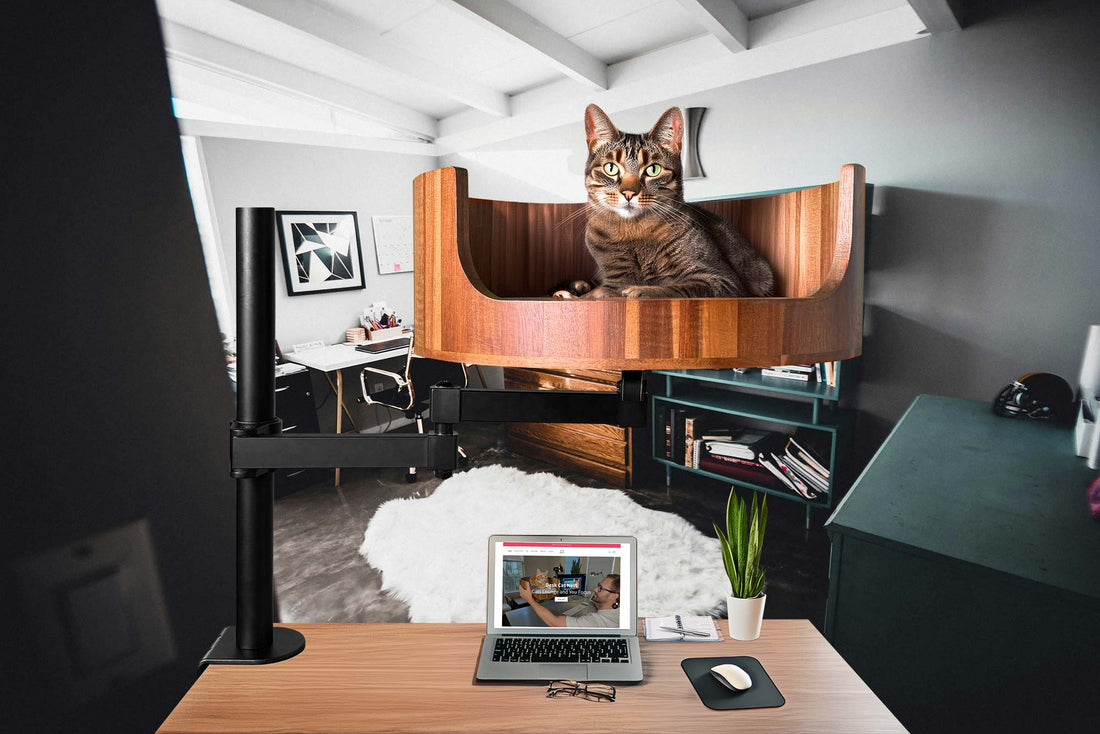
Why Does My 16 Year Old Cat Yowl? Understanding the Reasons
Share
Is your elderly cat constantly yowling and you’re not sure why? Understanding the reasons behind this behavior can help provide comfort for both you and your feline friend. As cats age, their behavior and vocalizations may change, and yowling is a common issue that many pet owners face with their senior cats.
In this article, we will explore the various reasons why your 16-year-old cat may be yowling, including medical issues, cognitive dysfunction, environmental factors, and attention-seeking behavior. By gaining a better understanding of the potential causes, you can take the necessary steps to address your cat’s needs and ensure their well-being in their golden years. Stay tuned to discover helpful tips and strategies for managing and reducing your cat’s yowling behavior, as well as when it may be time to seek guidance from a veterinarian.
1. Yowling in older cats, such as a 16-year-old feline, can be a sign of underlying health issues such as arthritis, dental problems, or cognitive decline.
2. Environmental changes or stressors can also trigger yowling behavior in senior cats, leading to increased vocalization.
3. Providing a comfortable and quiet space, regular vet check-ups, and interactive playtime can help reduce yowling episodes in older cats.
4. It is essential to consult with a veterinarian to rule out any medical conditions and discuss potential treatment options for your senior cat.
5. Understanding the reasons behind your cat's yowling behavior is crucial in providing proper care and support for your aging feline companion.
Health Issues
As cats age, they are more prone to developing health issues that can cause them to yowl. Common health problems in older cats include thyroid issues, dental disease, arthritis, and kidney disease. These conditions can cause pain and discomfort, leading to increased vocalization as a way of expressing their distress. If your 16-year-old cat is yowling more than usual, it's essential to schedule a visit to the veterinarian to rule out any underlying health issues.
Loss of Senses
As cats get older, they may experience a decline in their senses, such as hearing and vision. This loss of senses can cause confusion and anxiety in older cats, leading to increased yowling as they try to navigate their environment. Providing a calm and familiar environment for your older cat can help reduce their anxiety and minimize excessive vocalization.
Cognitive Dysfunction
Cognitive dysfunction, also known as feline senile dementia, is a common condition in older cats that can cause changes in behavior, including increased vocalization. Cats with cognitive dysfunction may become disoriented, forget previously learned behaviors, and exhibit changes in their sleep-wake cycles. If your senior cat is yowling more frequently and displaying other signs of cognitive dysfunction, consult with your veterinarian for management strategies.
Attention Seeking
Some older cats may yowl as a way of seeking attention from their owners. As cats age, they may become more dependent on their human companions and seek reassurance through vocalization. While it's essential to provide comfort and companionship to your senior cat, it's also crucial to establish a routine and respond to their needs in a consistent manner to reduce excessive yowling behavior.
Environmental Changes
Changes in the cat's environment, such as moving to a new home, introducing a new pet, or rearranging furniture, can cause stress and anxiety in older cats, leading to increased vocalization. Senior cats are sensitive to changes in their surroundings and may yowl as a way of expressing their discomfort. Providing a safe and predictable environment for your older cat can help reduce stress and minimize excessive yowling.
Frequently Asked Questions
Why does my 16 year old cat yowl?
Yowling in older cats can be a sign of various health issues such as cognitive dysfunction, arthritis, thyroid problems, or pain. It can also be due to stress, anxiety, or changes in the environment. It's important to consult with your veterinarian to rule out any medical reasons for the yowling.
Will the Desk Cat Nest help reduce my cat's yowling?
The Desk Cat Nest provides a cozy and comfortable space for your cat to rest and feel secure, which can help reduce stress and anxiety that may be causing the yowling. However, it's crucial to address any underlying medical issues with the help of a veterinarian to effectively reduce the yowling behavior.
How can I introduce my 16 year old cat to the Desk Cat Nest?
It's essential to introduce the Desk Cat Nest gradually to your cat by placing familiar bedding or toys inside the nest and placing it in a quiet and comfortable location. Encourage your cat to explore and use the nest at their own pace, using treats or catnip to make it a positive experience.
Can I use the Desk Cat Nest for a younger cat or a cat of a different age?
Yes, the Desk Cat Nest is suitable for cats of all ages. Younger cats may also benefit from having a cozy and secure space to rest and relax. However, if yowling behavior is observed in any cat, it's essential to consult with a veterinarian to address any underlying issues causing the behavior.
In conclusion, providing your 16 year old cat with a Desk Cat Bed can greatly reduce their yowling behavior. This comfortable and cozy bed offers a sense of security and comfort for your aging cat, helping to alleviate stress and anxiety that may be causing them to yowl excessively. By giving your cat a designated space to relax and sleep, you are promoting their overall well-being and happiness. Invest in a Desk Cat Bed today to improve your senior cat's quality of life and eliminate unnecessary yowling.



















































